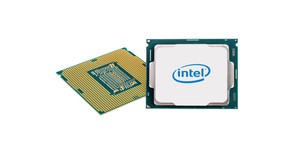
Intel has seemingly resolved its ongoing problems transitioning to a 10nm semiconductor manufacturing, promising to launch its eighth-generation Cannon Lake Core chips before the end of the year.
The move from 14nm to 10nm manufacturing nodes has not been smooth for Intel. The company's original roadmap called for the first 10nm chips to launch in 2015, but despite considerable investment the transition did not go well. By June 2015, rumours were spreading that Intel was going to miss the launch, while in July Intel's Brian Krzanich confirmed that the launch of the 10nm 'Cannon Lake' processors would have to be pushed back to some time in the second half of 2017.
The issues surrounding the 10nm transition - which were also felt during the development of the 14nm Broadwell parts, delayed to 2014 thanks to the increasingly complex physics surrounding ever-smaller components - have had a serious effect on Intel's development process. In March last year, Intel announced it was killing off the tick-tock development cycle it had rigorously adhered to earlier in the Moore's Law difficulty curve: Instead of releasing a revised architecture one year followed by the same architecture on a smaller process node the year after, Intel's new approach extends the life of each node by concentrating more on architectural improvements.
Now, though, Intel is confident that it has the 10nm issues resolved - so confident, in fact, that Intel's Brian Krzanich took to the stage at the Consumer Electronics show to promise that the first Cannon Lake parts would appear before the end of this year - despite having only just brought the 14nm Kaby Lake architecturally enhanced processor family to the open market.
The announcement brings Intel's semiconductor manufacturing technology back on a level playing field with the like of TSMC, but former AMD manufacturing arm GlobalFoundries is claiming to be skipping 10nm in favour of jumping to 7nm with the first chips due to enter production in 2018.
The move from 14nm to 10nm manufacturing nodes has not been smooth for Intel. The company's original roadmap called for the first 10nm chips to launch in 2015, but despite considerable investment the transition did not go well. By June 2015, rumours were spreading that Intel was going to miss the launch, while in July Intel's Brian Krzanich confirmed that the launch of the 10nm 'Cannon Lake' processors would have to be pushed back to some time in the second half of 2017.
The issues surrounding the 10nm transition - which were also felt during the development of the 14nm Broadwell parts, delayed to 2014 thanks to the increasingly complex physics surrounding ever-smaller components - have had a serious effect on Intel's development process. In March last year, Intel announced it was killing off the tick-tock development cycle it had rigorously adhered to earlier in the Moore's Law difficulty curve: Instead of releasing a revised architecture one year followed by the same architecture on a smaller process node the year after, Intel's new approach extends the life of each node by concentrating more on architectural improvements.
Now, though, Intel is confident that it has the 10nm issues resolved - so confident, in fact, that Intel's Brian Krzanich took to the stage at the Consumer Electronics show to promise that the first Cannon Lake parts would appear before the end of this year - despite having only just brought the 14nm Kaby Lake architecturally enhanced processor family to the open market.
The announcement brings Intel's semiconductor manufacturing technology back on a level playing field with the like of TSMC, but former AMD manufacturing arm GlobalFoundries is claiming to be skipping 10nm in favour of jumping to 7nm with the first chips due to enter production in 2018.

MSI MPG Velox 100R Chassis Review
October 14 2021 | 15:04








Want to comment? Please log in.